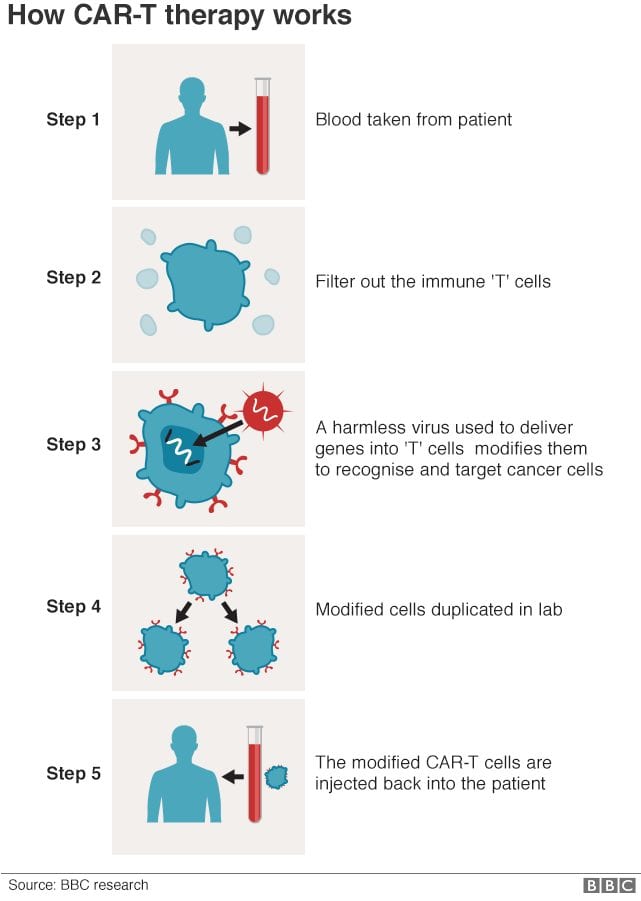T Cells That Attack Cancer – Discovered by Cardiff University Scientists
Scientists discovered that a new part of our immune system could be used to cure all cancers. The new method of killing breast, lung, prostate and other cancers is discovered by a team of researchers from Cardiff University.
The team published their new discovery in Nature immunology. Although it has not been tested in patients yet, researchers are confident about the enormous potential of the new discovery.
Our immune system that defends our body from an infection not only attacks foreign particles but also attacks tumor cells. The researchers were looking for previously undiscovered, unconventional methods of attacking tumor cells by the immune system.
What they finally found was a T-cell. T cell is an immune cell that helps in eliminating any threats in the body through a deep scan.
They found that this particular T Cell can attack a wide range of cancers. This could be a chance of treating every cancer patient, said Prof Andrew Sewell.
How does it work?
T-cells have receptors at their surface, which can detect particles at a chemical level.
The researchers at Cardiff University discovered the particular T cell and the receptor
that can detect and attack a wide range of cancer cells like blood, skin, lung, cervical, kidney, ovarian, prostate, bone, breast and colon cancer cells.And more importantly, these T cells did not attack normal healthy cells. How does the T cells attack cancer cells exactly is yet to be discovered. This T-cell receptor can interact with a molecule called MR1 that is present on every cell in the human body.
Scientists believe that it is through this interaction, T cells recognize metabolic distortions inside a cancerous cell. This is the first time scientists are discovering T-cells that finds MR1 in cancer cells.
Why is this significant?
There already exists T-cell cancer therapies and the development of immunotherapies for cancer was a breakthrough achievement in the field.
CAR-T is one such T-cell immunotherapy against cancer. CAR-T is a drug developed by genetically engineering the patient’s T-cell to attack cancer cells. It has the potential to cure even terminally ill cancer patients completely.
But, it works for only a few types of cancers where there is a clear target to train the T-cells to spot. And this approach was not successful in the case of solid cancers where there is a tumor rather than blood cancers like leukemia. But the new T cell discovered could be used to treat any type of cancer, claims scientists.
So how would it work in practice?
T cells will be extracted from the blood samples collected from the patient and then genetically engineered to carry the cancer-finding receptor.

The reprogrammed T-cells will be cultivated in a laboratory to vast quantities and then will be transferred back to the patient, the same as the CAR-T therapy.
However, it has been tested only in animals and on cells. More safety checks need to be done before it can be presented for a human trial.
What do the experts say?
Gennaro De Libero and Lucia Mori from the University of Basel in Switzerland commented that the research has great potential, however, it is too early to say if it will work for all cancers or not.
“We are very excited about the immunological functions of this new T-cell population and the potential use of their TCRs in tumor cell therapy,” they said.
But according to Daniel Davis, a professor of immunology at the University of Manchester, it is very basic research and not even close to actual medicines.






























